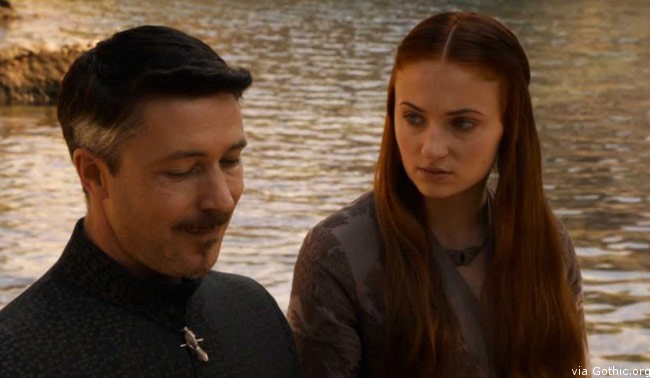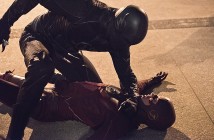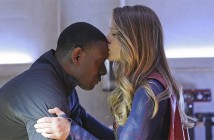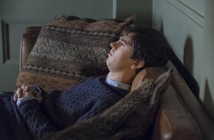Brought to you by our friends at Talk Thrones.
At the core of Game of Thrones, behind the dragons, the sex, the violence, the cruelty, the accents, the sex again, and CGI, the series truly thrives on relationships, and how those connections between people, and usually the gap in power between two subjects, can inspire those characters to do extreme things. Good or bad. As the wise Ben Wyatt once said, excitedly, “It’s a crossover hit! … They’re telling human stories in a fantasy world!”
What forges these relationships? Oh, a great many things. Family is paramount. Those are the connections one can’t choose. Next is married family. Those connections are almost exclusively strategic, and, as Cersei, Tyrion, Ser Loras, and Sansa Stark will tell you, are relationships that still one can’t choose (in fact, the one instant in which a character does marry for love, and spites a strategically advantageous tying of the knot, he, his mother, and his dog were, as the Hound put it, slaughtered like livestock). After that, the only bonds left are the loyalty of a subject, that of a paid man or sellsword, then that of slave. And way, way down the list? That’s where one can find friendship. After all, friendship is the blindest trust of all, and it’s hard to remain friends when each knows to trust no one.
“Breaker of Chains”, the third episode of this fourth season of Game of Thrones, runs the gambit of these complicated one-on-one relationships, and through them we can only glean the true intentions or past transgressions of each actor.
The once and current Queen Regent accuses her brother of murdering her son, huddled over his blue and lifeless body. The last known living heir to Winterfell is rescued (or so we’re led to believe) by her new uncle, moments before he kills the one person she considered a friend. A once-future-queen and her grandmother sit in a garden, the former distressed about her husband’s assassination, the latter more perturbed by her granddaughter’s whining than by the murder itself. The Hand of the King schools his grandson on the finer points of rulership while in arm’s distance of the boy’s brother’s corpse, the old man going so far as to confirm what a terrible king he was. A member of the Kinsguard, and the murdered king’s “uncle” (father) rapes his sister, his former lover, next to the body of his son. Another daughter of Winterfell is transported by a one-time sworn enemy to safety, although he’d tell you it’s for the gold and nothing else (well, maybe some silver, too). A kind and gentle farmer opens his doors to two travelers who trespass on his land. A member of the Night’s Watch sends away the woman he loves, fearing for her safety among his colleagues at The Wall. The Lord of Dragonstone argues with his oldest friend and most trusted advisor. That same advisor then goes for reading lessons with the Lord of Dragstone’s daughter. The Hand of the King reaches out to a prince of Dorne, who has a sworn hatred for the hand and his entire family, with yet another pragmatic solution to each’s problems. The Master of Coin and accused murderer of the king thanks his young squire from his dungeon cell, only to tell him to flee and forget his master. A Night’s Watch from Winterfell tells his fellow guards of the need to kill some of their former cohorts. And the Mother of Dragons has a most bad ass message for the slaves of Meereen.
Through these actions, we’re told one incongruent story. Standing between the viewer and the truth is only the dissonance between it and the deceptions told by our characters. And wading through that information on the quest for actuality is a lot of the fun of the series; what humanly devices characters use to get their way, or, in the weaks’ case, get things “the right” way, only to die predictably.
This dynamic is especially interesting in “Breaker of Chains” because, unlike the events of the Red Wedding, the particulars of Joffrey’s poisoning are a mystery to the audience, but also seemingly to those in and around King’s Landing. Someone is lying. And when it comes to this crime, most are suspects, with the exception of the man that will actually be tried for murder.
HOUSE LANNISTER
Mourning in the Lannister family is like mourning in any other family, with the slight exception that only one person truly gives a damn about the deceased and that incest probably doesn’t occur mere feet from a cold dead body at most wakes. Tywin passes on valuable knowledge to Tommen, Joffrey’s younger brother and the next in line to the throne, at this scene. Asked what makes a good king, Tommen offers three guesses at different times, each shot down by his grandfather. Pious?—no, the most religious king named a six-year-old his High Septon and promptly starved himself to death; Just?—sure, it’s a good quality, but not the most important: we’ve seen where that gets characters like Nedd Stark, and Tywin notes a king that was killed by his own brother because he was so trusting; Strong?—well, Tommen’s “father” was one of the strongest ever to rule, but strength and leadership are two different things: King Robert “only attended three Small Council meetings in 17 years.” At the outset of the scene, Tywin notes that he believes Tommen has the right temperament to be a good ruler. The young Lannister’s answer to Tywin’s question, “What do they all (the three kings previously mentioned—holy, just, and strong) lack?” shows that the eldest Lannister probably wasn’t just blowing smoke up his grandson’s ass. “Wisdom,” he finally lands on the answer Tywin was looking for. Clearly he’s eager for approval, but also seems genuinely concerned with the finer points of leadership. Tywin then offers some most precious advice that would do a great deal of good in our world, if only we knew enough people would consider it: “A wise king knows what he knows and what he doesn’t.” Tywin stresses the importance of heeding the advice of experienced advisors, but interestingly leaves off a provision that might have been of considerable importance: knowing whom to trust and whom not to; to take great care in choosing one’s advisors.
Why leave off that provision? The obvious reaction is that Tywin, at this point, is Tommen’s top advisor, and so the Hand of the King’s word is merely a pipeline running through him and out of Tommen’s mouth. Why anyone in Westeros would want that to be their situation is obvious, but I can’t help but acknowledge the level of suspicion it raises: Could Tywin have had Joffrey killed? There’s enough evidence to build a case. The repercussions for the kingdom are obvious: a king as terrible as Joffrey could doom King’s Landing on a whim, like, say, torturing the wrong prince or princess. But Tywin’s love isn’t for the kingdom. Cersei’s lone positive trait is that she loves her children unconditionally. But Tywin loves his family—particularly the family name—and loves keeping it in power. Would it be worth killing one awful member of that family to prolong the reign of the rest of the Lannisters? I think so.
HOUSE STARK
Sansa is stolen away from the scene of Joffrey’s murder by Ser Dontos. He offers her his last kind words before she climbs up the ladder of a ship to what might be safety: “You’re stronger than you know.” Lord “call me ‘Peter’” Baelish is at the top of the rope ladder, and has masterminded what became of Sansa and Dontos’ relationship after the former saved the latter’s life. Littlefinger’s men give the fool his “payment”: death instead of 10,000 gold. “Money buys a man silence for a time; a bolt in the heart buys it forever.” He may be a dick, but Littlefinger knows how to navigate through power in Westeros. Which makes his being in possession of Sansa either terrifying or a relief. The jury’s still out until more information arises. This dynamic manifests in the final exchange of the scene: “What did I once tell you?” he asks
“We’re all liars here,” Sansa recalls. To which Littlefinger can only grin.
“Come my lady. I know you’ve had a difficult day, but you’re safe now. I promise you that. You’re safe with me, sailing home.” Kind of a funny thing to tell someone immediately after telling her how untrustworthy he is. Baelish obviously had designs of extracting Sansa for quite a while. What are his intentions with her? And did he have a hand in Joffrey’s murder? Or was Dontos just aware enough to recognize his only chance to “rescue” the lady?
The Arya-Hound buddy-cop comedy tour continues to admirably fill the void left by Jaime and Brienne’s similar situation from a season ago. Arya uses her cunning to convince a farmer to give her and the Hound food and shelter, but in typical fashion, the younger Clegane takes advantage of the sad sack more than Arya had intended. It doesn’t move the story along too far, but earns the two some silver, as well as some pointed remarks from the Hound: “He’s a good man, and his daughter makes a nice stew, and they’ll both be dead come winter … he’s weak, he can’t protect himself … dead men don’t need silver.”
Arya expresses disagreement in so few words: “You’re the worst shit in the seven kingdoms!”
“There’s plenty worse than me. I just understand the way things are. How many Starks they gotta behead before you figure it out?” Much like Littlefinger, the Hound knows how things work and tries to impart that knowledge on a Stark girl. Although his intentions are selfish, he doesn’t take pleasure in doing what needs to be done. But he lives with a hardened heart that allows him to make the right cold, calculated decisions.
OTHER NOTES
– I may have buried the lead, but Ser Davos strikes up a plan he certainly believes to be brilliant, and it involves the offices of the Iron Bank of Bravos. Considering his humble nature, I’ve got to assume he’s right.
– Sort of related to Littlefinger’s possible knowledge of Joffrey’s impending doom: After a third re-watch of the king’s death and lead-up, it’s pretty clear that Varys knows what’s coming, or at least that something is coming, including long before sitting down for the actual reception.
– Daenerys’ taking of Meereen is spectacular, the final shot garnering a giggle of excitement from this 26-year-old male reviewer. But that doesn’t change how wrong for the part the new Daario Naharis is.
And let’s finish up with some out-of-context Hound quotes:
“Ay, just point out the next map shop you see and I’ll buy you one.”
“Second Sons could be … seems like a good fit for me.”
Snot rocket “I doubt it.”
“If I’m standing on it, it’s my land.”
“You going to do all seven of the fuckers?”
“We ask the stranger not to kill us in our beds tonight for no damn reason at all.”
“Call that a fight? Slaughterin’ livestock, more like.”
“How can a man not keep ale in his home?”



